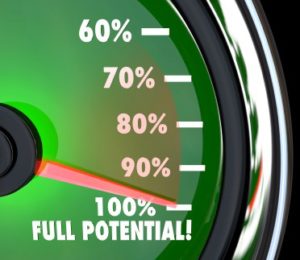 “What’s the most effective and efficient way to evaluate our donor database for giving potential if we don’t have wealth screening software?”
“What’s the most effective and efficient way to evaluate our donor database for giving potential if we don’t have wealth screening software?”
That was the question posed to Jeff and me recently when we did a live Q & A with blog readers and Major Gift Academy alumni.
The word “potential” can mean different things to different people and organizations. In one setting, a donor who can give $5,000 has potential. In another setting, the number is $500,000. So keep this in mind as I deal with the concepts here, rather than the amounts.
If you don’t have wealth data info on your donors, here are the steps we follow for selecting donors for a caseload pool, which is the first step toward qualifying a donor for your caseload OR simply deciding what donor you should talk to:
- First, decide your pool selection criteria. We suggest that anyone giving $1,000+ cumulatively in a calendar year is a good place to start. You might drop that to $500+ cume – you decide. Then select off those donors who have given that amount in any of the last three calendar years plus this calendar year YTD. Be sure to include all the giving data of the donors you select, including lifetime giving.
- Then, take the resulting group of donors and look at recency, frequency and amount of giving. The first thing you want to do is find those donors currently on your database who have given recently, have given the most (by amount), and have given frequently. They are the donors who are showing inclination – a proven affinity for your organization. Do not fall prey to the urge to chase a donor who gave $10 two years ago but you know “has a lot of money.” That is a dead-end street. A donor who is with you right now, proven by their giving, is the donor you should consider looking more closely at. Do NOT do any of the next steps unless the donor passes this first step.
- Google the donor. It is amazing what you can find by just typing in the donor’s name and city. Try it. And keep digging.
- Look up the home address. Go to www.zillow.com and other real estate sites for info on the donor’s home. Just the zip code will tell you if the home is in an affluent neighborhood, etc.
- Look up the business. If you know that the donor owns a business, look that up at www.zoominfo.com or www.secinfo.com or www.hoovers.com.
- If the donor is an attorney go to www.martindale.com.
- If a doctor, go to www.ama-assn.org.
- If you find the donor is head of a family foundation – go to www.taxexemptworld.com or Google the 990.
- Ask the donor. If there is a way to talk to the donor, do that. And ask how they got to know the organization. Then carefully segue off into whether they’ve always lived here and “what kind of work do you do?” Do not be in a hurry. Just be relational and ask questions.
There is a lot of research you can do that will cost you very little. Try it. And if you have other ideas that are not covered in this post, please let Jeff and me know.
Richard






Political giving is really easy and free to access at http://www.FEC.gov – if your donor has given to a federal candidate (and there’s lots of crossover between political donors and non-profit donors), then you can see how much they give politically, who they give to, and the records go back for years!